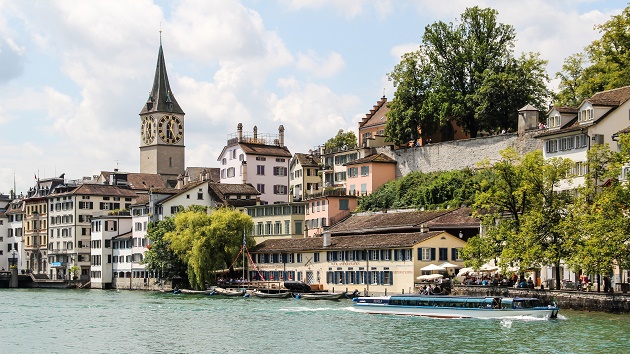Refugees become Christians in Switzerland, join evangelical churches
“The strong spirituality and familiar atmosphere in independent evangelical churches respond to the needs of the new converts”, admits a Protestant minister. Many converts face threats after leaving Islam.
20Minutes, Evangelical Focus · 31 AUGUST 2016 · 18:21 CET

In Switzerland, several churches report about conversions to Christianity among former Muslims.
The Counselling Centre for Questions about Integration and Religion (BIR, in German) confirmed this trend among refugees. “In the last month, the reports talk of Afghans and Kurds who are converting to Christianity”, the coordinator of BIR, Kathrin Anliker, told the 20 Minuten newspaper.
Many reject the experience of radical Islam they suffered in their home countries and are now open to new worldviews, Anliker believes. “Furthermore, some people who are getting baptised in Switzerland already had a Christian faith in their homeland, but had to hide it for fear of being persecuted.”
Are some getting baptised just to have more chances to get asylum? Léa Wertheimer, spokesperson of the State Office for Migration makes it clear that in Switzerland a conversion to Christianity has no effect in the state's final decision: “We check every case and decide if the person gets asylum or not based on the Swiss Asylum law.”
Still, the BIR asks all Christian leaders to analyse the reasons behind every conversion: “Churches should be reluctant when someone seems to be just looking for a document that confirms their conversion to Christianity.” Even so, these fake conversion are not usual, she admits.
MANY JOIN FREE EVANGELICAL CHURCHES
A big number of the refugees who convert to Christianity in Switzerland are joining free evangelical churches. “The strong spirituality and the familiar atmosphere which are found in independent evangelical churches probably respond better to the needs of the new converts than the somehow detached state churches”, says Philippe Dätwyler, a Reformed Protestant Church minister.

Armin Mauerhoffer, a FEG pastor, believes evangelical churches should make it a priority to serve these newcomers. “New refugees come to our meetings regularly with a desire to join our community.” This is why the sermons in his church are now translated into Persian.
THE RISKS FOR NEW CHRISTIANS
It is not easy for a former Muslim to convert to Christianity. Several have suffered assaults and receive death threats from fellow asylum seekers who do not respect their right to change religion.
Returning home to an Islamic country is also risky after leaving Islam.
REFUGEES BECOMING CHRISTIANS IN EUROPE
Media in several other European countries have reported about similar trends in conversions to Christianity.
Evangelical Focus reported about cases happening in Finland, the UK and Austria, Germany, Belgium and Albania.
Published in: Evangelical Focus - europe - Refugees become Christians in Switzerland, join evangelical churches
